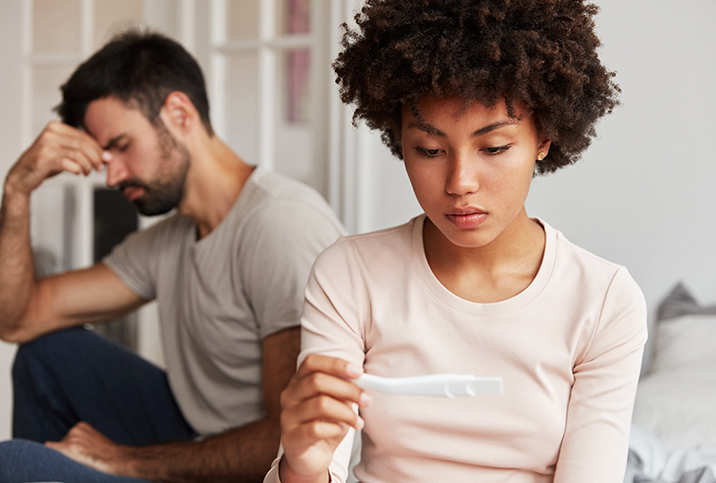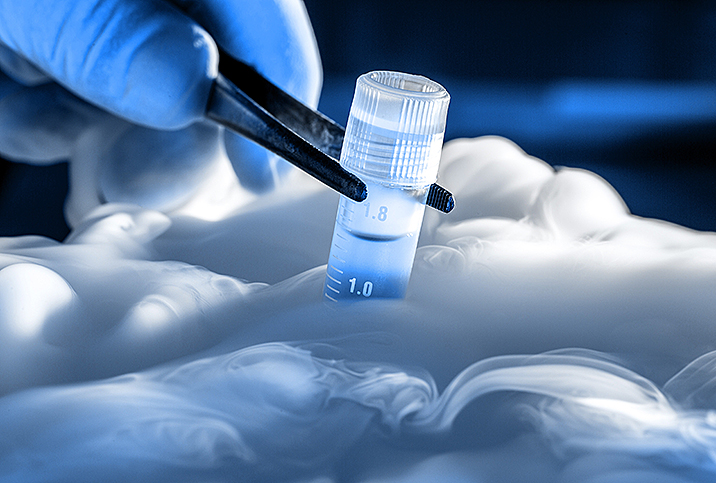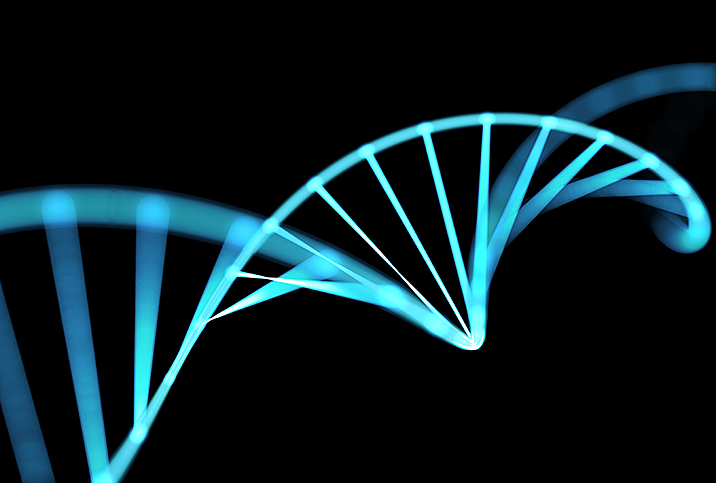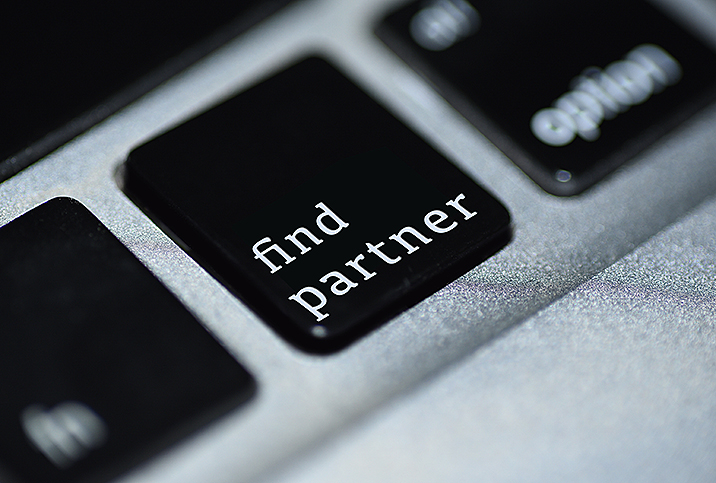The Rise of Genetic Matchmaking

In early 2009, ABC News ran a video segment centering a long-term singleton named Stacy, who had decided to “swab herself in the name of love” and hand her DNA over to then newly launched matchmaking service GenePartner. After an awkward, televised date with a man identified as a 90 percent "match," Stacy was quizzed about the experience. "It makes you feel like, 'Wow, we’re compatible based on DNA,'" she said, with palpable awe in her voice. "There must be some real science there."
The fascination has only accelerated since then. In 2019, Japanese dating company Nozze held a "DNA Matching Party" in Tokyo, where hopeful romantics paid the equivalent of $300 to submit DNA samples and mix with "highly compatible" potential partners. That same year, PheraMor––the first app-based genetic matchmaking service––was booted from the Apple store due to rules which “forbid dating apps from procuring DNA samples from users."
In March this year, Netflix reignited the debate by debuting an eight-part adaptation of the best-selling sci-fi novel "The One," which dramatizes a fictional DNA matchmaking service. Clearly, cultural curiosity has grown over the years, yet the ethics and science behind these services are still hotly contested.
When Tamara Brown, Ph.D., launched GenePartner alongside fellow genetics researcher Joelle Apter, M.Sc., in 2008, they both anticipated a backlash to their amorous endeavor. "I believe we were way before our time," Brown said. "People are still skeptical about giving away their DNA, but I do think people are a lot more open to the idea of genetic matchmaking than they were back then."
The theoretical springboard for GenePartner (and many of their rival dating services) came from a 1995 experiment conducted by Swiss evolutionary biologist Claus Wedekind, Ph.D., better known as the "sweaty T-shirt study." The Major Histocompatibility Complex (MHC) is a multigene family that props up the immune system and plays a key role in the body’s immune responses, and the huge diversity in MHC has long fascinated and confused scientists. In 1976, research published in the Journal of Experimental Medicine found variations in the MHC genes influenced mate selection among mice and rats, but Wedekind remained unconvinced that these were the best research subjects.
Determined to learn more, he duly recruited female students to sniff a series of shirts that had been worn by male students for two consecutive days. Results showed an inverse correlation between MHC similarity and attraction score; this, Wedekind concluded, "MHC or linked genes influence human mate choice."
It didn't take long for this vague hypothesis to get snatched up by dating sites. "I wasn’t surprised at all that the research was exploited by companies who specialize in matchmaking," Wedekind said with a chuckle. "I spoke to three different owners of matchmaking companies, and I asked each of them the same question: 'What algorithms are you using?' Details really matter so I was curious to understand more, but none of them wanted to tell me."
GenePartner and similar sites acknowledge DNA compatibility as a small part of a much wider puzzle when it comes to matchmaking. Yet media reports tend to downplay this. The aforementioned video segment makes only a passing mention of this key disclaimer, swiftly followed by a clip of a confident Brown declaring the service as "really, really accurate." Especially in the age of the "loneliness pandemic," the lure of a scientifically backed ticket to true love is hard to resist.
Currently, DNA matchmaking sites rely on smoke, mirrors and a growing cultural desire to be given scientific, quick-fix solutions to messy, interpersonal relationships.
"These [dating] services are the kind of things that I and other geneticists occasionally tweet about as a joke," said Kevin J. Mitchell, Ph.D., associate professor of genetics and neuroscience at Trinity College Dublin. "We basically say: 'Look how ridiculous this is. Look at the snake oil that’s being sold to people.'"
Mitchell has strong opinions on genetic matchmaking services, which he argued "utterly simplify what makes people attracted to each other." In his eyes, commercial DNA compatibility services more generally peddle a myth that "you can predict something about an individual’s traits from their genes." Primarily, DNA profiles are used to determine hereditary health issues and biological family trees––think of the endless talk-show paternity test scandals. Now, companies offer bespoke wine lists supposedly tailored to your DNA.
"There’s a mystique built up around genetics, and of course it’s being monetized by large companies," Mitchell said. Claiming predictive qualities might be possible in a minority of cases if data sets span "thousands and thousands of people," he continued, "even then, the findings that you get have very little predictive power for individual traits––more so for some than others, but it’s still very, very limited."
Mitchell summarized bluntly: "The idea that you can reduce the complex social and life experience factors that drive attraction to something purely biological is just absurd."
Wedekind also clarified that social factors are “probably more important” in the quest for true love. "These MHC effects apply to somewhere between zero and 5 percent of all cases [more generally], so they’re not necessarily very strong," he explained. Feedback varied during the research, too. "One woman who smelled the T-shirts I offered her felt physically sick all day," he recalled. "It was like a physical attack on her well-being. Yet some women found it very pleasant, and one woman said she couldn’t smell it at all. For each odor, you get a whole scale." He paused, then joked: "The good thing is that means there's someone out there who will like your odor!"
Some DNA dating services pair genetic analysis with other compatibility algorithms––users of DNA Romance, launched in 2014, can opt-out of submitting DNA altogether and rely solely on psychological profiles instead. Yet Mitchell argued that companies generally overstate the efficacy of genetic matchmaking and obfuscate the real facts with "the claim that they do all this complicated analysis which is behind the scenes. They wow you with complexity and that becomes part of the selling point, but I see no scientific basis for what they’re offering."
These experiments have long flagged key ethical concerns. When Wedekind first planned his study, "at least two politicians misunderstood the research" and mounted a campaign against him. "They probably saw the key words––'humans,' 'mates,' 'genetics'––and associated them with eugenics," he said, "so both contacted me and told me they would do whatever they could to get me expelled from university. One even called it Nazi research."
The deeply racist legacy of eugenics––the belief that genetic engineering could be used to "improve" populations, championed as a "cleansing" technique by Nazis––lingers heavily over genetics-based innovations. "There is a kind of 'eugenics' feel to a lot of these technologies," Mitchell continued. "I was joking a few months ago about Tinder and [genetic analysis site] 23AndMe teaming up, with the idea of using your DNA profile and getting scores out that relate to things like intelligence. Then, someone could use that as one of the characteristics on their dating profile."
The fear of these advancements if placed into the wrong hands is understandable, but currently, DNA matchmaking sites rely on smoke, mirrors and a growing cultural desire to be given scientific, quick-fix solutions to messy, interpersonal relationships.
"There is something in the zeitgeist where people seem to be looking for something to help find themselves," concluded Mitchell. "It's genetic astrology, really. You might as well say: 'I’m a Gemini, and therefore I’m compatible with a Libra.' There’s as much science to back up that statement as there is behind any DNA matchmaking service."


















